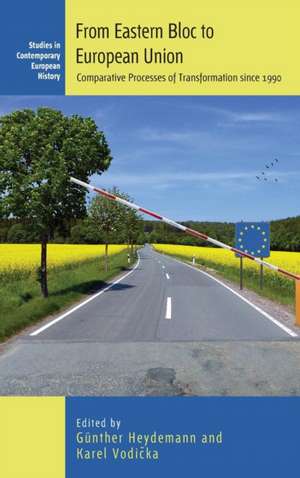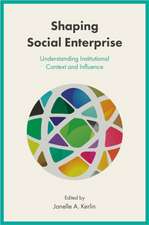From Eastern Bloc to European Union: Contemporary European History, cartea 22
Editat de G. Heydemann, Karel Vodickaen Limba Engleză Hardback – 30 mar 2017
More than 25 years after the fall of the Soviet Union, European integration remains a work in progress, especially in those Eastern European nations most dramatically reshaped by democratization and economic liberalization. This volume assembles detailed, empirically grounded studies of eleven states--Estonia, Latvia, Lithuania, Poland, the Czech Republic, Slovakia, Hungary, Romania, Bulgaria, Slovenia, and the former East Germany--that went on to join the European Union. Each chapter analyzes the political, economic, and social transformations that have taken place in these nations, using a comparative approach to identify structural similarities and assess outcomes relative to one another as well as the rest of the EU.
Preț: 835.91 lei
Preț vechi: 1085.58 lei
-23% Nou
159.97€ • 166.40$ • 132.07£
Carte tipărită la comandă
Livrare economică 14-28 aprilie
Specificații
ISBN-10: 1785333178
Pagini: 394
Dimensiuni: 152 x 229 x 27 mm
Greutate: 0.68 kg
Editura: BERGHAHN BOOKS INC
Seria Contemporary European History
Descriere
More than 25 years after the fall of the Soviet Union, European integration remains a work in progress, especially in those Eastern European nations most dramatically reshaped by democratization and economic liberalization. This volume assembles detailed, empirically grounded studies of eleven states--Estonia, Latvia, Lithuania, Poland, the Czech Republic, Slovakia, Hungary, Romania, Bulgaria, Slovenia, and the former East Germany--that went on to join the European Union. Each chapter analyzes the political, economic, and social transformations that have taken place in these nations, using a comparative approach to identify structural similarities and assess outcomes relative to one another as well as the rest of the EU.

























